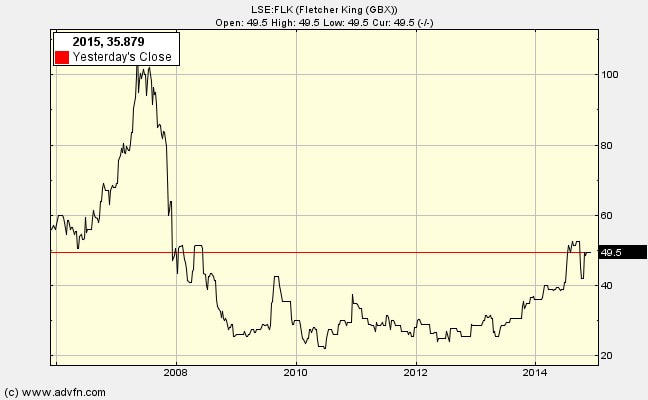|
I'll look at three key aspects of the company in today's blog: indicators of (a) good management, (b) good business prospects and (c) stability. 1. Good management.
There are 18 members of staff. The three leaders have been with the company for a minimum of 14 years. They each have decades of experience in commercial property management. They have seen recessions come and go. David Fletcher, founding director and chairman, has 40 years of experience. He also owns 14.6% of the shares. The managers have formed good relationships with clients, some over decades. Seemingly honest and realistic appraisal of the business prospects through the recession years: using words/phrases such as ‘challenging’, ‘keep a steady eye on overhead costs’ ‘it will take all our ingenuity and resource to maintain turnover’ 2. Good prospects Profits before tax for the last three years have not fallen below £0.29m pa and dividends have consistently been 1.5p. With a share price of 31p (when I wrote this in August 20123, now 52p) the dividend yield is just under 5% (dividends now raised to 3p). This performance has been achieved at a low point in the property cycle. At the last high point (2007) dividends amounted to 4.75p pa. Given the company’s balance sheet strength there is every reason to believe that what remains of the current recession will be survived. Could dividends then go back to 4.75p? If they do then the Mr Market might push up the share price. Of the reasons Benjamin Graham gives for a turnaround in the prospects of a NCAV company perhaps the most compelling for this case is that the earning power will be lifted to the point where it is commensurate with the company’s asset level. This will not come about through either the benefit of competitor exit from the industry or from the replacement of the senior managers, but by an improvement in the property market combined with tight management practices (honed in the recession). FK has high operational gearing: with high fixed costs, small percentage increases in revenues should feed through to large percentage increases in eps. Another possibility is a merger, as another firm may value the brand name and the long-standing relationships with property fund managers, but this is unlikely given the sense of continuity of the existing managerial team. The final alternative of liquidation would be wasteful given the profitability and the reputational competitive advantage enjoyed by this firm. 3. Stability Positive profits have been achieved year-in-year-out through a difficult period (satisfying Graham’s high average past earnings power requirement) and the balance sheet has remained robust. Much of the income comes from collecting rents on buildings for client quarter after quarter, providing a solid source of revenue. I cannot detect manipulation of earning numbers and sense that such a conservatively run firm is unlikely to play accounting tricks. In tomorrow's blog I'll examine some reasons for concern with FK both in August 2013 and in December 2014
0 Comments
Leave a Reply. |
Archive
I wrote newsletters for almost 10 years (2014 - 23) for publication on ADVFN. Here you can find old newsletters in full. I discussed investment decisions, basics of value investing and the strategies of legendary investors. Archives
October 2020
Categories |

 RSS Feed
RSS Feed